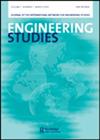The Early Career Years of Engineering: Crossing the Threshold Between Education and Practice
IF 1.3
3区 工程技术
Q2 EDUCATION, SCIENTIFIC DISCIPLINES
引用次数: 6
Abstract
In studies of engineering practice, the early career phase is a particularly intriguing area of inquiry. It is frequently imagined as the time when more-or-less competent graduates enter the workforce and launch successful careers, often in large corporate organizations and supported by various types of onboarding programs. Yet this kind of idealized representation belies a much more complex reality, one in which many engineering graduates pursue careers on the edges (or outside) of engineering, navigate complex organizational socialization and identity development pressures, and grapple with unexpected competency demands. In school and at work, early-career engineersmight additionally encounter calls to be more entre/intrapreneurial, multidisciplinary, innovative, culturally competent, and/or socially conscious – but without acknowledging that some of these attributes may conflict or poorly alignwith certain industries or job roles. Further, rapid changes in technology, markets, organizational structures, and demographics – to name just a few – continue to reshape and transform engineering work across all career stages. Against this complex and ever-changing backdrop, research investigating the actual lived experiences of early-career engineers helps explore the relationships between engineering education and practice, including preparation of engineering students for the realities of entering the workforce. Calls for study of this important segment of engineers’ careers have appeared in the literature as early as the 1980s, with Sara Rynes1 noting, in her study of early-career engineers transitioning to manager positions, how it was “curious that so little research has examined engineers at earlier career stages.” Since then, an increasing number of researchers have published studies on early career engineering practice; however, such research has remained somewhat limited in scope due to the complexities of the space, the changing demographics of engineering students, and the dynamic nature of engineering practice. For example, Nadya Fouad and colleagues2 identified a lack of focus on the early-career years in research on women engineers’ persistence, while Reed Stevens, Aditya Johri, and Kevin O’Connor3 observed a need for research that “examines directly the specific learning processes of engineers making the transition from school to work.” Even within Engineering Studies, where a substantial body of work has attended to engineering formation and engineering work, articles have not particularly focused on the continuation of engineering formation after graduation or the influence of engineering work on organizational newcomers, save for a few exceptions.4 The articles in this special theme issue help narrow the gap in work on early-career engineering practice and the engineering school-to-work transition by further examining the dynamic and complex day-to-day realities of early-career engineeringwork. These insights, in turn, offer a deeper understanding of and support for the training of current and future engineering professionals. The impetus for this special issue originated at a 2018 National工程早期:跨越教育与实践的门槛
在工程实践研究中,职业生涯的早期阶段是一个特别有趣的研究领域。人们通常认为,这是或多或少有能力的毕业生进入职场并开始成功职业生涯的时候,通常是在大型企业组织中,并得到各种类型的入职计划的支持。然而,这种理想化的表现掩盖了一个更复杂的现实,在这个现实中,许多工程专业毕业生在工程的边缘(或外部)从事职业,应对复杂的组织社会化和身份发展压力,并努力应对意想不到的能力需求。在学校和工作中,早期职业工程师可能会遇到更多的要求,要求他们更具创业精神/创业内部、多学科、创新精神、文化能力和/或社会意识,但不承认其中一些属性可能与某些行业或工作角色相冲突或不协调。此外,技术、市场、组织结构和人口结构的快速变化——仅举几个例子——继续重塑和转变所有职业阶段的工程工作。在这种复杂而不断变化的背景下,调查早期职业工程师实际生活经历的研究有助于探索工程教育与实践之间的关系,包括为工程学生进入职场的现实做好准备。早在20世纪80年代,文献中就出现了对工程师职业生涯中这一重要部分进行研究的呼声,Sara Rynes1在她对早期职业工程师转变为经理职位的研究中指出,“奇怪的是,对处于早期职业阶段的工程师的研究如此之少。”从那时起,越来越多的研究人员发表了关于早期职业工程实践的研究;然而,由于空间的复杂性、工程专业学生人口结构的变化以及工程实践的动态性,此类研究的范围仍然有些有限。例如,Nadya Fouad及其同事2发现,在研究女性工程师的毅力方面,缺乏对职业生涯早期的关注,而Reed Stevens、Aditya Johri和Kevin O'Connor3则观察到需要进行“直接检查工程师从学校到工作过渡的具体学习过程”的研究,在大量工作涉及工程形成和工程工作的情况下,文章并没有特别关注毕业后工程形成的延续或工程工作对组织新人的影响,除了少数例外。4这期主题特刊中的文章通过进一步研究早期职业工程工作的动态和复杂的日常现实,有助于缩小早期职业工程实践和工程学校到工作过渡方面的差距。这些见解反过来又为当前和未来工程专业人员的培训提供了更深入的理解和支持。这期特刊的动力源于2018年全国
本文章由计算机程序翻译,如有差异,请以英文原文为准。
求助全文
约1分钟内获得全文
求助全文
来源期刊

Engineering Studies
ENGINEERING, MULTIDISCIPLINARY-HISTORY & PHILOSOPHY OF SCIENCE
CiteScore
3.60
自引率
17.60%
发文量
12
审稿时长
>12 weeks
期刊介绍:
Engineering Studies is an interdisciplinary, international journal devoted to the scholarly study of engineers and engineering. Its mission is threefold:
1. to advance critical analysis in historical, social, cultural, political, philosophical, rhetorical, and organizational studies of engineers and engineering;
2. to help build and serve diverse communities of researchers interested in engineering studies;
3. to link scholarly work in engineering studies with broader discussions and debates about engineering education, research, practice, policy, and representation.
The editors of Engineering Studies are interested in papers that consider the following questions:
• How does this paper enhance critical understanding of engineers or engineering?
• What are the relationships among the technical and nontechnical dimensions of engineering practices, and how do these relationships change over time and from place to place?
 求助内容:
求助内容: 应助结果提醒方式:
应助结果提醒方式:


